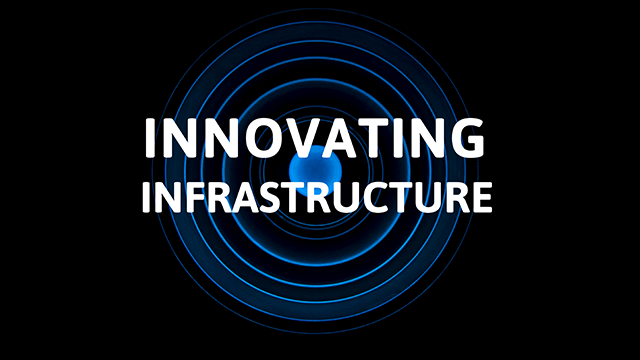1292 results found
Featured results



More results
Join the GI Hub and G20 Italian Presidency for day two of the InfraChallenge final, in which the Top 10 competitors will give their final pitches of their solutions, and the 2021 winner will be announced.
This GI Hub and IFC webinar discussed approaches to attracting institutional investors and mobilising capital markets, highlighting solutions and lessons learnt from two recent projects.
With a USD3.7 trillion global infrastructure investment need that continues to widen, and government debt levels substantially higher than they were after the global financial crisis, recent infrastructure bond issuances offer valuable lessons.
Transforming Infrastructure Performance: Roadmap to 2030 sets out a vision for innovation and reform in infrastructure delivery.

The GI Hub today launches a shorthand cost-benefit analysis tool for analysing the environmental, social, and economic (ESE) benefits of bus transport projects.
Innovating Infrastructure is a new podcast from the GI Hub that showcases new and emerging technology-based solutions to infrastructure challenges. Hosted by GI Hub’s Director of Thought Leadership, Monica Bennett the ten-part series delves deep into these solutions to find out how they will create impact towards a more resilient future.
Join the GI Hub and G20 Italian Presidency for the two-day InfraChallenge 2021 final, featuring sessions with expert guest speakers exploring technological innovations and their role in creating resilient infrastructure, and the final of the InfraChallenge competition with live announcement of the 2021 winner.
In this panel discussion, participants will be introduced to approaches to attracting institutional investors and mobilising capital markets, hearing solutions and lessons learnt from recent projects in India and South Africa.
The US Senate has passed the $1 trillion Infrastructure Investment and Jobs Act, the ‘historic’ bill promises vital investment in areas from roads, bridges and trains to broadband access and clean drinking water.

The NSW Procurement Policy Framework provides a consolidated view of government procurement objectives and the Procurement Board’s requirements as they apply to each step of the procurement process.



The NSW Government Business Case Guidelines have been developed to assist agencies and government entities with the preparation of business cases in line with best practice.


What role should an Infrastructure Commission play in Northern Ireland? Could it help build a pathway to net zero? And what signal would it give to the private sector? GI Hub speaks to Kirsty McManus and Richard Johnson of Northern Ireland's Ministerial Advisory Panel on Infrastructure for answers on these questions and more.
To increase its global competitiveness, Brazil created an ambitious strategy to attract more private investment in its infrastructure. A partnership with the Global Infrastructure Hub helped Brazil implement and realise this strategy.

As countries announce major infrastructure packages to stimulate their post-pandemic recovery, the sector faces two substantial and related challenges: climate change and a funding shortfall, writes Marie Lam-Frendo, Chief Executive Officer of the Global Infrastructure Hub.
In 2021, the Global Infrastructure Hub published the findings of a survey of G20 members that collected case studies and examples of projects or programs that demonstrate the benefits of QII or exemplify good practice in their countries or in recipient countries. This survey was undertaken at the request of the G20 Infrastructure Working Group (IWG). It can be accessed here.

The Assessment Framework is designed to help you to develop high-quality infrastructure proposals for submission to us. It provides a national standard for best-practice infrastructure development, and explains our requirements and process for assessing proposals.

The aim of this exercise is to better understand the landscape by cataloguing and mapping what already exists, acknowledging that the list will never be exhaustive.

Delivering quality infrastructure will increasingly become a key priority for governments globally, requiring substantial investment from both the public and the private sectors.
InfraChallenge 2021 invited ideas for building and maintaining better, more resilient infrastructure. Today we announce the Top 10 competitors.

InfraCompass helps governments improve policies, institutions, and systems to optimise infrastructure investment.






 InfraChallenge website
InfraChallenge website












